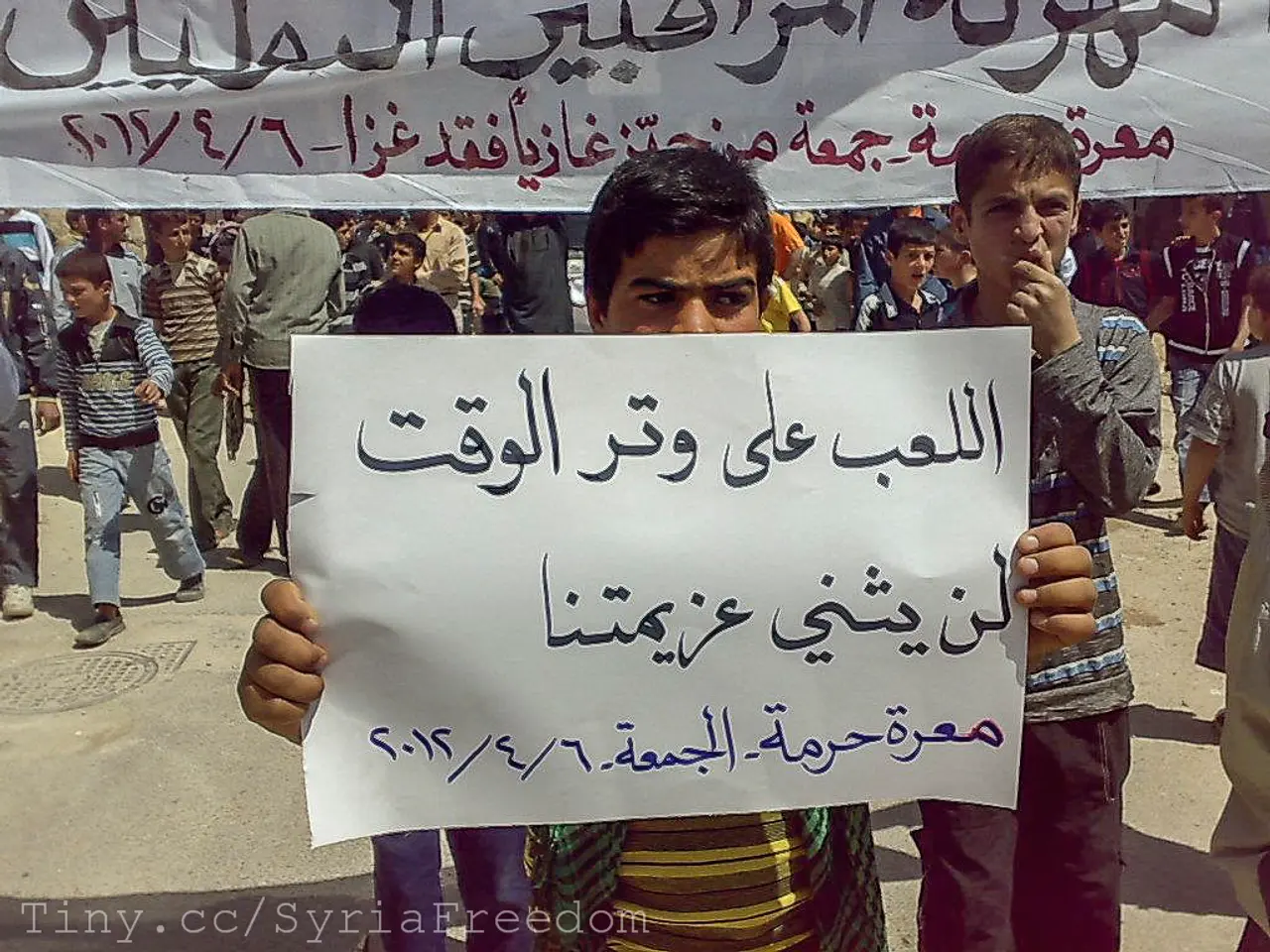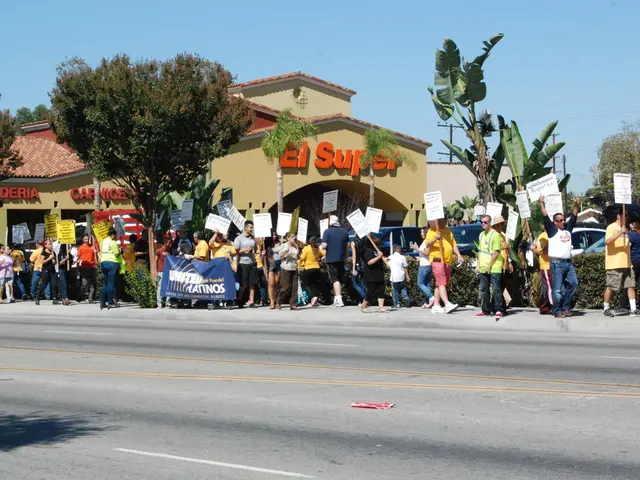Military force being planned by the Pentagon for domestic unrest, according to a published report.
The United States is currently considering the creation of a Domestic Civil Disturbance Quick Reaction Force (QRF), a National Guard unit designed for rapid response to civil unrest or protests in American cities. This proposal, which has been met with significant debate, was first disclosed in August 2025 through Pentagon internal documents [1][2][3][4][5].
The QRF, consisting of 600 troops divided into two groups based in Arizona and Alabama, would be ready to deploy within an hour. Unlike traditional National Guard operations, these troops would be equipped with military-style weapons and riot gear to suppress disturbances [1][3][4][5].
However, the plan faces several controversies and concerns. Critics argue that using the National Guard to quell civil unrest could undermine its reputation as a politically neutral force and risk militarizing responses to protests, potentially threatening civil liberties [2][3].
Legal and jurisdictional issues also arise, as the proposal relies heavily on Title 32 federal funding authorization, which allows expanded National Guard powers in states with "unrest," including the ability to make arrests. This raises concerns about the legality and appropriateness of such authority at the federal level without state consent [2].
Operational challenges, such as logistical complications, reduced availability of the National Guard for other missions, cost (estimated in the hundreds of millions of dollars), and potential burnout of troops rotating every 90 days, are also concerns [2][3][4].
Some officials see this as a dangerous departure from existing procedures for requesting additional assistance during unrest, warning it could normalize rapid military intervention in domestic protests [2].
As of August 2025, the plan's final approval status remains unknown [3][4][5]. The Pentagon has not publicly confirmed the plan, referring to such documents as "predecisional."
Meanwhile, the US President Donald Trump has announced the deployment of 800 National Guard troops to Washington and the temporary takeover of the city's police department. This action, presented by Trump as necessary to "rescue" Washington from a wave of lawlessness, has been met with opposition from Washington Mayor Muriel Bowser and District of Columbia Attorney General Brian Schwalb, who have called Trump's actions "unprecedented, unnecessary, and unlawful" [6][7].
In a separate development, a federal trial began on Monday in San Francisco regarding whether Trump contravened US law by deploying National Guard troops to Los Angeles in June without the approval of California Governor Gavin Newsom [8].
Hundreds of officers and agents from more than a dozen federal agencies are currently deployed in Washington, with approximately 100 to 200 National Guard troops supporting law enforcement at any given time [9].
Trump has also threatened to deploy National Guard troops to Chicago, referring to it as a "disaster," and has suggested that other major US cities with Democratic leadership could be next [10].
However, Schwalb, the District of Columbia's Attorney General, has stated that there is no crime emergency in the District of Columbia [11].
References:
- Washington Post
- AP News
- CNN
- New York Times
- Politico
- Washington Post
- CNN
- AP News
- Washington Post
- CNN
- NBC News
The proposal for a Domestic Civil Disturbance Quick ReactionForce (QRF) has sparked debates in the realm of politics, with critics questioning its potential impact on civil liberties and the National Guard's political neutrality. This controversy is further fueled by concerns around the legality and appropriateness of federal control over National Guard operations without state consent.
Moreover, the QRF's creation could have far-reaching implications, as some worry it might normalize rapid military intervention in domestic protests, deviating from established procedures for requesting additional assistance during unrest. These discussions surrounding war-and-conflicts, policy-and-legislation, and crime-and-justice continue to unfold in the general news.







